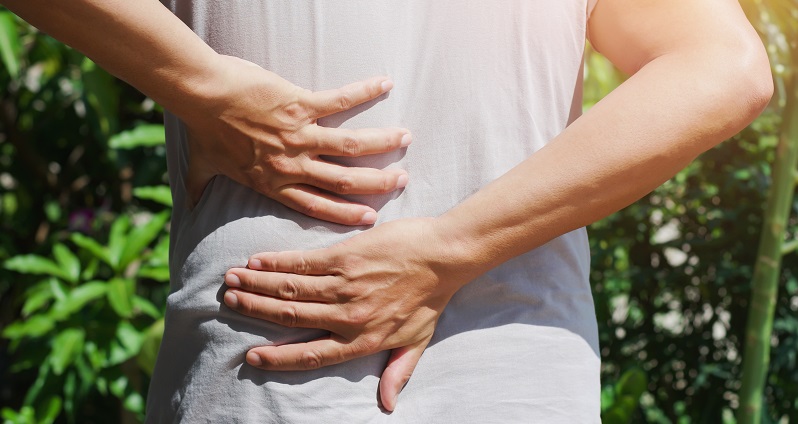Why You May Have Back Pain While Losing Weight
Category: Back Pain | Author: Stefano Sinicropi

One of the best things you can do to treat existing back pain or reduce your risk of back problems in the future is to work towards an optimal weight. We love that you’re taking ownership of your health and your spine by working to lose weight, but if you’ve found that back discomfort has actually started to increase as a result of your new-found health focus, you’re not alone. It’s not uncommon for back pain to increase as a person is working hard to lose weight. In today’s blog, we explain why this is the case, and we share some tips for preventing back pain while you’re on your weight loss journey.
Weight Loss And Back Pain
Weight loss can be extremely helpful for your spine in the short and long term. That’s because your spine helps to handle and disperse the stress of your body weight with every step you take. Losing just a few pounds can take a significant amount of stress off your spine, which in turn slows down the natural degeneration process. However, many people find it hard to lose weight because their back actually starts hurting while they are in the midst of trying to lose weight or keep it off. Here’s some of the reasons why this happens, and how you can try to avoid back pain while you’re working towards your weight loss goals:
- Overexercise – The easiest way to burn calories and excess fat is by becoming more active. If you greatly increase your exercise levels in a very short amount of time, you can overstress different areas of your body and cause an injury to develop. It’s great that you want to exercise more and be very active, but start slow and gradually take on greater challenges, otherwise you may risk developing an overstress injury in your spine or elsewhere in your body.
- Dehydration – Similarly, if you’re exercising more, you’re also probably sweating more. Sweating is your body’s natural way to keep itself cool, but if you aren’t replenishing these lost fluids, you can become dehydrated. When you’re dehydrated, your muscles can’t function as optimally and you are at an increased risk of strains or muscle spasms. Make it a point to increase your water intake as you begin to exercise more during your weight loss journey.
- Nutrient Deficit – The two main components of weight loss are exercise and diet improvements, and unfortunately many people assume that they really need to cut back on food consumption in order to lose weight. It’s important to continue to get a range of healthy foods packed with vitamins and minerals so that your body can get the nutrients it needs to function optimally. If you starve yourself or really restrict your diet in order to cut down on calorie consumption, your body may soon find itself lacking the nutrients it needs. When this happens, it can end up pulling these nutrients from bones, meaning your bones can become more brittle, in turn increasing your fracture risk. Don’t starve yourself in order to lose weight, just be more conscious about the types of foods you’re putting in your body. Make sure you are still getting plenty of the important food groups so that your body can naturally get the nutrients it needs.
Diet and exercise will help to fuel your weight loss goals, but if you pursue these factors incorrectly, you may soon notice discomfort developing in your back. If you keep these tips in mind and work with a spine specialist who can help tailor a specific fitness program to your needs, we’re confident that you can achieve weight loss and keep back pain at bay. For more information, or for help with a different spine-related issue, reach out to Dr. Sinicropi and the team at The Midwest Spine & Brain Institute today at (651) 430-3800.